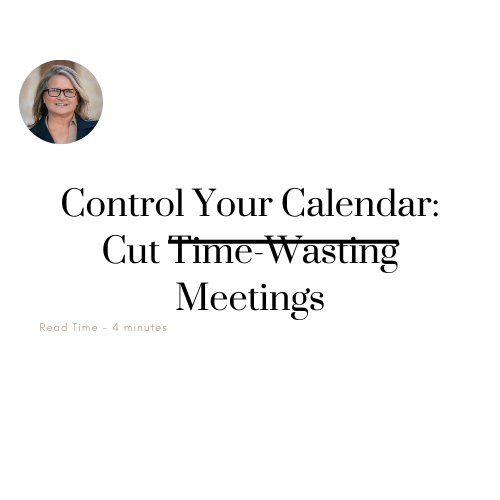That weekly Tuesday catchup meeting? It might be a morale, flexibility, and time-killer trifecta.
What starts with good intentions can become a time-sucking routine no one finds valuable.
If you hold meetings that seem to go nowhere, you can make a change.
Why Delete a Recurring Meeting?
- Meetings Lose Focus: The original purpose fades, and you’re left with a meeting that feels more like a box-checking exercise than a productive session.
- They’re Inefficient: Recurring meetings often involve too many people, last too long, and achieve too little.
- Flexibility is Lost: Sticking rigidly to the same meeting schedule makes it harder to support flexibility in the workplace.
How? Start With That One Meeting You Dread
- Evaluate the Meeting’s Purpose
Ask yourself: What’s this meeting really for? If the purpose is unclear, or if it’s no longer aligned with your goals, why is the meeting on your calendar?
2. Get Input from the Team
Ask your team how they feel about the meeting. Are they finding it valuable, or is it just another item on their to-do list? Gather feedback through surveys or direct conversations to get the real scoop.
3. Explore Alternatives
One-Pagers: Instead of status meetings, try a simple weekly summary where everyone shares key updates. It’s quicker, clearer, and no meeting required.
Asynchronous Updates: Use project management tools for updates. This keeps everyone in the loop without needing a real-time gathering. Did you know Slack is free for nonprofits with up to 250 users and deeply discounted if more than 250?
Walking Meetings: If a meeting is more about social cohesion, try a walking meeting. It’s a great way to spark creativity and have open conversations while getting some steps in.
Test and Tweak
Implement your new format and see how it goes. Keep an eye on how well it’s working and be ready to make adjustments. The goal is to improve, not just change for the sake of change.
Routinely Reassess
Start by assessing one meeting. And then, make it a habit to review all your recurring meetings regularly. Ask if they’re still necessary and if they’re delivering value. If not, make changes before they become a drag.
By swapping out just one recurring meeting for something more effective, you’ll free up time, keep your team engaged, and create a more flexible work environment.

Leave Your Comment